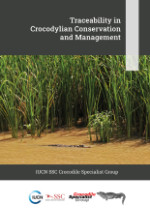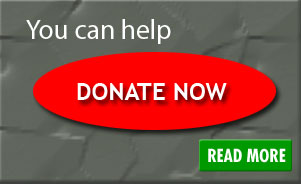Latest News and Information28th CSG Working Meeting (11-19 May 2026)
----- Website Launched -----
The 28th CSG Working Meeting will be held in Agadir, Morocco, on 11-19 May 2026. The working
meeting (13-16 May) will be preceded by a veterinary workshop (11 May) and meeting of the CSG
Steering Committee (12 May), and followed by field trip/s (17-19 May).
Organisors are pleased to inform that the meeting website (CSG26 Agadir) has now been launched, and additional
details will be posted as they are finalised.
CSG members are urged to consider participating in the biennial working meeting, which provides
an important venue for showcasing the diversity of work being undertaken around the world on crocodilians.
-------------------------------------------------------------
Crocodile-Parasite Data Sheet Updated
The Crocodile-Parasite Data Sheet that summarises current knowledge on
crocodile-parasite
interactions for different species has been updated (to May 2025). Thanks to Josh Dregalla and Marisa
Tellez.
-------------------------------------------------------------
CSG Communications Strategy 2025-2029
The CSG's Communications Strategy has now been finalised, following review by the CSG Steering
Committee, and is now available (Download). The strategy reflects the mission and goals of the CSG, and is designed to
serve the needs of various target audiences in a constantly evolving world. The strategy also aims to provide
various platforms to share current events, news, and other relevant information.
-------------------------------------------------------------
Invitation to Participate in Survey Developed by CSG Living with Crocodilians Working Group
Background In many regions of the world, attacks by crocodilians on humans and their domesticated animals are an obstacle to crocodilian conservation. There is a need for sound expert advice on policies, on which methods work in particular circumstances, and on how to implement them. For this reason, in April 2024 the CSG Executive Committee approved the formation of the Living with Crocodilians Working Group to tackle the associated challenges. This Working Group builds on the work of the previous Human-Crocodile Conflict Working Group (2002-2014).
The initial structure of the Working Group is Simon Pooley (Chair; UK), Ronis Da Silveira (Brazil), Yusuke Fukuda (Australia), Mohd. Izwan Zulaini Abdul Gani (Malaysia), Morgan Hart (USA), Rainier Manalo (Philippines), Laura Porras Murillo (Costa Rica), Paulino Ponce-Campos (Mexico), Brandon Sideleau (Indonesia, PNG), Colin Stevenson (South Asia), Jan van der Ploeg (Solomon Islands) and Bobby Cross (Project Support Officer; UK). The work carried out on the Working Group is overseen by CSG Executive Advisory Group (EAG) member Matt Brien.
The LWC Working Group focuses on reducing Human-Crocodilian Conflict (HCC) and fostering coexistence with crocodilians. A general goal is to support those involved with human-crocodilian interactions, including community leaders, local authorities, conservationists, researchers, government agencies, etc., to mitigate attacks and foster coexistence with crocodilians.
Given differences between regions with regard to strategies and methods favoured, and the ecological contexts, a "How To Prevent Crocodilan Attacks" Survey has been developed to assess and compile information on current approaches and perceptions of their effectiveness, worldwide (see below).
The LWC Working Group invites the participation in the Survey, of people who live and/or work in areas where crocodilian attacks, and/or who have direct experience with crocodile attacks and/or involvement in management actions to prevent them.
Aim: To gather information on the range of management actions being used to prevent crocodilian attacks and other negative interactions between humans and crocodilians worldwide, and their effectiveness within particular contexts.
Outcomes: Results of the survey will be analysed and a resource of recommended interventions fitted to particular contexts developed, with management recommendations. This will be publicly available.
Confidentiality: The information you share in this study will be kept completely confidential. All data will be stored securely by Simon Pooley. Data used in any publications will not include your name or details (unless we contact you directly, and you agree).
To participate in the Survey (until 30 May 2025), CLICK HERE
-------------------------------------------------------------
Bullying, Harassment and Discrimination Prevention
Policy
for CSG-Endorsed Events
Bullying, Harassment and Discrimination Resolution
Procedures
for CSG-Endorsed Events
All members of the IUCN SSC, and thus CSG members, are
bound by the SSC Code of Conduct of the Members of IUCN
Commissions. The CSG also adheres to the IUCN Policy on the Protection from Sexual Exploitation,
Sexual Abuse, and Sexual Harassment and related Anti-harassment Policy, including bullying and sexual
harassment, for IUCN Events. Regardless, since the inception of the
CSG in 1971, the underlying
premise upon which CSG members are expected to operate is, and always
has been, “respect, understanding and tolerance”, regardless of an
individual’s characteristics.
A claim of harassment at a CSG Working Meeting (in 2018)
stimulated the IUCN to formulate guidelines for handling claims of
harassment, should they arise, and also resulted in a “closed” investigation
on the case by the IUCN in 2022-2023. Prior to the completion of this
investigation, concerns were raised by two members of the CSG Steering
Committee that additional measures may be required to deal with allegations
of bullying, harassment or discrimination at CSG-endorsed events, and thus
ensure that events continue to provide a professional, respectful and
harassment-free environment.
Accordingly, the CSG Executive Committee developed its own Policy and Procedures to address incidents of harassment, bullying or discrimination, should they occur, at CSG-endorsed events (eg working meetings, regional meetings, species meetings, virtual meetings) and other forms of communication. Draft versions of the Policy and Procedures were circulated to CSG Steering Committee members in February 2024, seeking their review and comments, and the documents (Bullying, Harassment, and Discrimination Prevention Policy for CSG-Endorsed Events and Bullying, Harassment, and Discrimination Resolution Procedures for CSG-Endorsed Events) were finalised (late-March 2024).
-------------------------------------------------------------
United Nations Sustainable Development Goals and Crocodilian
Conservation
The UN Sustainable Development Goals (SDGs) were adopted by
the United Nations in 2015, as a universal call to action to end poverty,
protect the planet, and ensure that by 2030 all people enjoy peace and
prosperity. The CSG and its members play a significant role in
contributing to the achievement of many of the UN's 17 SDGs. This document
summarises how crocodilian conservation efforts support the SDGs (download here).
-------------------------------------------------------------------------
Traceability in Crocodylian Conservation and Management
 As reported in a recent CSG Newsletter [40(3)], the CSG Executive Committee
endorsed, and has now released, "Traceability in Crocodylian Conservation and Management".
The report addresses traceability, an issue that has been debated at recent CITES forums.
The CSG Executive Committee thus agreed to review traceability, as it applies to
crocodylians at this point in time, and to provide CSG members and others interested in the
issue, with a snapshot of key points. Dr. Dan Natusch prepared an overview of traceability
in reptiles in general, which comprises Chapter 3 of the report.
-------------------------------------------------------------------------
|
• Resources developed by the CSG Veterinary Science Group. Including recent "Humane Euthanasia/Killing Methods for Crocodilians - An Update" (2020). • Fritz Huchzermeyer Veterinary Science Student Research Assistance Scheme • CrocFest Reports • Latest IACTS (International Alligator and Crocodile Trade Study)
report, 2021-2023 (John Caldwell; UNEP-WCMC). Download. |

 Email CSG
Email CSG




